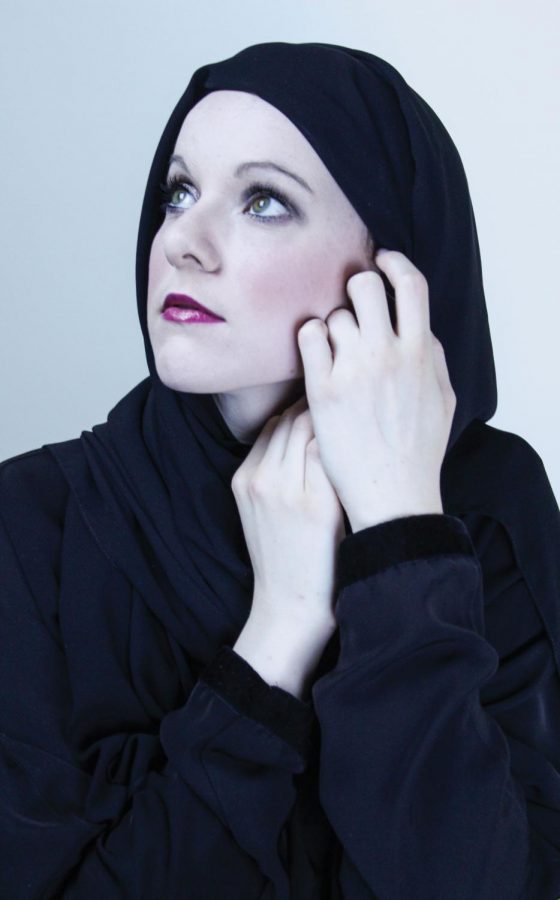UNA students, professors blast longtime Hollywood whitewashing practice
February 19, 2015
Hollywood may be the land of dreams for some, but for minorities, it is the land of scarce opportunity.
Whitewashing is the term given to the practice of film studios casting Caucasian actors to play originally ethnic characters.
Jason Pangilinan, assistant professor of film and digital media production, said a look back at Hollywood’s beginnings shows it was owned and run by a certain ethnic group.
Karen Wardell, assistant professor of English, said there was a list of “don’ts and be carefuls” created in 1927 that censored what could be done on-screen. Any kind of intimacy between a white and nonwhite person was one thing that was not allowed.
“It created a lot of shifts in the way people dealt with sexuality, violence, references to religion. And one of those was the issue of whitewashing,” she said.
In an interview with Variety Magazine, Ridley Scott, director of the epic film “Exodus: Gods and Kings,” said in defense of his predominantly Caucasian casting, “I can’t mount a film of this budget, where I have to rely on tax rebates in Spain, and say that my lead actor is Mohammad so-and-so from such-and-such. I’m just not going to get it financed. So the question doesn’t even come up.”
Junior Keith Leopold said he does not think whitewashing is prevalent anymore.
“I’m not saying that it still doesn’t exist, but there’s been great progress toward equality and tolerance in race and sexual orientation in new shows and movies,” he said.
It is important to support movies that have a variety of races and cultures, said senior Nasser Almutairi.
“I would love to see my culture and race represented correctly and not misunderstood,” he said.
Whitewashing is a mindset in the system of the current people who run Hollywood, Pangilinan said.
Talent agencies use breakdowns to submit people for roles, he said. As a minority himself, Pangilinan said submitting people for roles was difficult and filled him with a general sense of dread.
There has been recent controversy surrounding the casting calls for “Straight Outta Compton,” a movie about N.W.A. Sande Alessi Casting sent out a call on their Facebook looking for A-girls of all races who were the “hottest of the hot” and D-girls who were the “poor African-American girls.”
“When the actors get called in, they get this breakdown then they realize what they’re being called in for,” Pangilinan said. “It helps reinforce ‘hey you’re black, you’re dark-skinned, you’re poor, you’re uneducated.’ That’s the sort of value that’s placed on you.”
There’s a lack of opportunity for people of color, Wardell said. Instead of seeing them appear in roles that represent actual African-Americans, they often appear in very damaging, stereotypical ways.
“Halle Berry won her Oscar for “Monster’s Ball,” Pangilinan said. “She had to be dirt poor, cheap and slightly on the whorish side.”
With decades of this conditioning in film and television, ethnic leads do not come around very often, Pangilinan said.
Wardell said she thinks part of the problem is the box office wants famous and powerful stars who are most often white, which leaves limited opportunities for minorities to achieve success.
“It’s kind of unnecessary to have an A-list celebrity portray someone that they’re not just because of who they are,” sophomore Whitney Pacil said. “Why not give somebody else a chance?”
Hollywood is full of talented people and it is ridiculous whitewashing is still happening, she said.
“Look at the nominations of this year’s Oscars,” Pangilinan said. “It’s all white people.”
The last time the Oscars had all-white nominations was in 2011.
“We do still increasingly have actors, producers and directors of color from Denzel Washington to Spike Lee,” Wardell said. “But still it seems all too often they are the exception rather than the rule. It’s a problem for audiences because you don’t see accurate representations on screen.”
Senior Mark Bryant said casting white actors in ethnic roles is an excuse to go back to an old way of thinking.
“From a fan’s perspective, I enjoy watching movies if it’s somebody of an actual ethnicity,” he said. “It adds to the story. We’re going to have to stop being racially bound by these things and start to move forward.”












